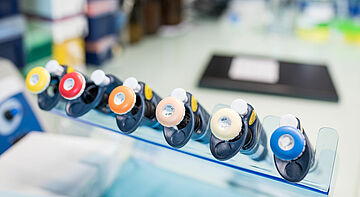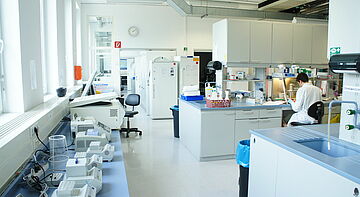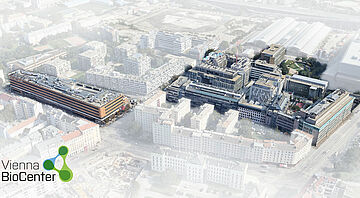Fertilization of an egg by sperm is the beginning of new life. The maternal and paternal genetic information, that collectively store the body plan of the living being, are combined soon after fertilization. However, the DNA is still in an inactive state in the cell nucleus at this early stage of life. While the first division of the fertilized egg cell functions with the help of maternal factors stored in the egg, for further development of an embryo the synthesis of new embryonic products is necessary, which requires access to the DNA of the embryo. Kikuë Tachibana and her team at the Max Planck Institute of Biochemistry (MPIB) have now discovered that the pioneer factor Nr5a2 awakens the embryonic DNA. The research results were published in the journal Science.
Read the full story on the IMBA website.
The early part of this work was carried out at IMBA and financed throughout by the Max Planck Society and an ERC Consolidator grant. Two of the first authors, Johanna Gassler and Siwat Ruangroengkulrith, performed part of their research at IMBA in the frame of the Vienna BioCenter PhD Program.




